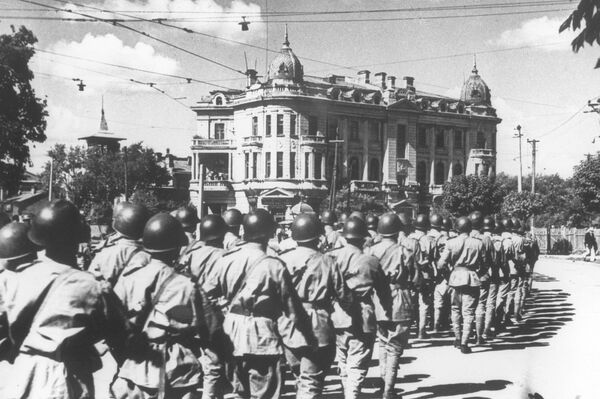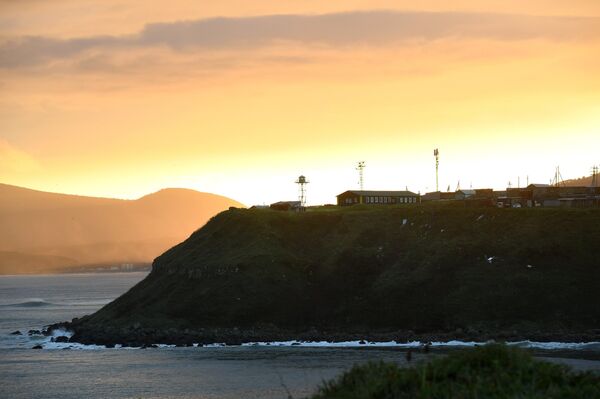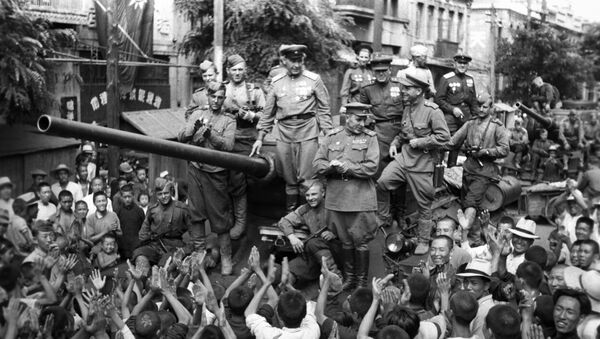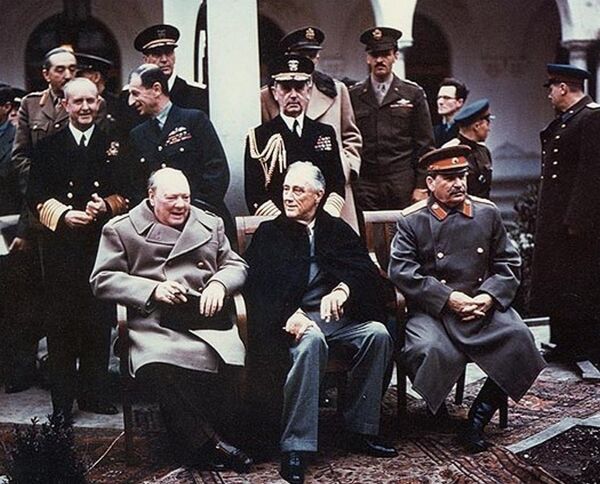Japanese journalist Ryosuke Endo has called on Russia to ‘admit’ that the Soviet military operation against Japan in August 1945 was a “mistake,” saying such an admission would be necessary to improve Japanese-Russian relations.
In an op-ed in major daily newspaper Sankei Shimbun, the journalist pointed to the internment of Japanese prisoners of war in Soviet POW camps, and to the deaths of some 38,000 POWs in Soviet captivity "due to hunger, cold and exhaustion from hard work," as admitted to by former Soviet leader Mikhail Gorbachev in 1991. Endo suggested these deaths amounted to a “state crime.”
“In order for Russia and Japan to begin genuine cooperation, the USSR and Russia must admit the mistake it made in attacking Japan,” the journalist suggested. “Russian President Vladimir Putin…insists on the correctness of the outbreak of hostilities against Japan [in 1945]. One cannot say that he is serious about resolving the problem of the ‘northern territories’,” he added.
August Storm
The USSR formally agreed to join the war against Japan at the Yalta conference in February 1945, declaring war on Tokyo exactly three months after the end of hostilities in Europe.
Between August 9 and August 20, Soviet and Mongolian forces carried out the Manchurian Strategic Offensive Operation, with some 1.5 million Soviet and Mongolian troops encircling and defeating Japan’s Kwantung Army of over 700,000 men, as well as over 200,000 troops from the puppet Manchukuo and Mengjiang armies. Revisionist historians have attributed the Soviet attack on Manchuria as one of the decisive factors which forced Japan to surrender, with some arguing that the invasion was of equal or even greater importance to the US atomic bombings of Hiroshima and Nagasaki on August 6 and 9, 1945 in Emperor Hirohito's calculations.

As a result of the war, the USSR formally returned territories annexed by Japan from the Russian Empire after the humiliating Russo-Japanese War of 1904-1905, including southern Sakhalin Island, as well as the Kuril Islands, previously ceded to Tokyo in 1876, and the southern Kurils, previously administered by Japan in accordance with the 1855 Treaty of Shimoda.
Japan does not recognise Russia’s sovereignty over the southern Kurils, and demands the islands be ‘returned’ to Japan as a precondition for negotiations on a peace treaty between Moscow and Tokyo, which has yet to be signed over 74 years after the end of World War II. Moscow insists that a peace treaty can be signed only once Japan recognizes the outcome of the Second World War, including Russian sovereignty over the islands.

Japan has been reluctant to take responsibility for war crimes committed by Japanese militarists during the Second World War. This state of affairs has led to decades of icy relations between Tokyo and countries it previously occupied, including Korea and China. These crimes included the covert biological and chemical weapons research unit of the Imperial Japanese Army known as Unit 731, which conducted lethal experiments on human beings during the war. In addition to its Chinese victims, the unit targeted Russians, Mongols and Koreans, as well as European, American, Indian and Australian prisoners of war.



